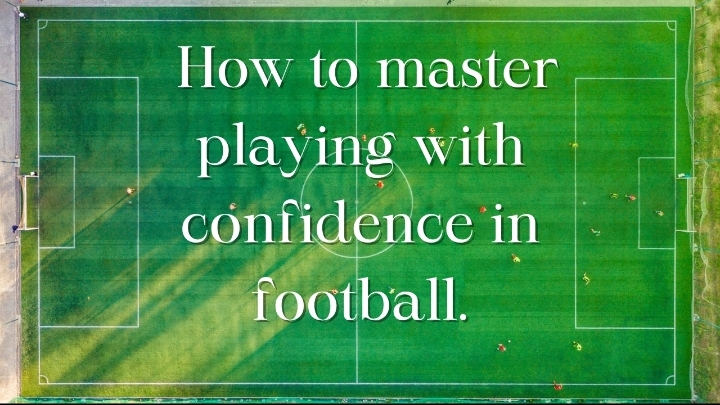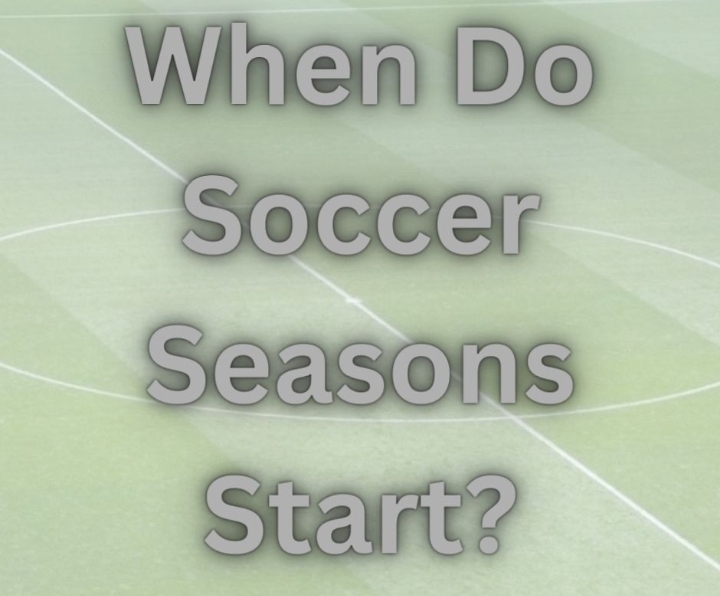Playing with confidence is crucial for any footballer. But how exactly can you develop and maintain high levels of self-belief in your abilities? This article will provide 10 tips to help you play more confidently in football or soccer.
1. Understand Your Strengths
The first step to playing with confidence is having a strong understanding of your abilities as a player. Identify the skills and attributes that are your strengths on the pitch.
What is your best position? Are you an excellent dribbler, clinical finisher, precise passer, and organized defender? Know your strengths so you can focus on maximizing them during training and matches.
Analyze your strengths honestly but also focus on the positive capabilities you bring to the team. Have the belief that you have valuable talents to contribute when playing your game.
2. Visualize Success
Visualization techniques are a powerful way to program the mind for confident performance. Dedicate time before each game to visualize yourself succeeding.
Picture yourself on the pitch making a great dribble, scoring a goal, making a crucial tackle, or saving. Imagine the feelings of confidence, pride, and joy you experience after contributing positively.
Envision your teammates congratulating you, fans cheering, and your mental confidence growing. Visualize the details – sights, sounds, emotions – as vividly as possible.
Mental imagery conditions your mind and nerves for the confidence needed to execute skills successfully. Visualization gives you familiarity and comfort to tap your potential.
3. Prepare Thoroughly
Thorough preparation is vital for taking the pitch with confidence in any sport. Ensure you do everything possible to get physically and mentally ready before each game:
- Follow your pre-match routine consistently to feel fully prepared. This may include nutrition, hydration, sleep, warm-up drills, strategy review, and equipment check.
- Arrive organized with all your gear ready to avoid last-minute rushing. Have your kit, boots, shin guards, tape, etc. packed the night before.
- Get proper rest so you feel energized. Sleep, nutrition, and hydration all impact energy levels.
- Review scouting reports so you understand opponents’ strengths and have a game plan.
Thorough pre-game routines eliminate distractions and doubts. You can tell yourself “I’m prepared and ready” to reinforce confidence.
4. Control Your Self-Talk
The inner voice and “self-talk” in your head impact confidence. Monitor your internal monologue and challenge negative thoughts that breed doubt.
When you catch yourself thinking things like
- “I’m going to mess up this pass.”
- “They’re too quick for me to defend.”
- “I always miss scoring chances.”
Hit the mental pause button. Take a breath. Then consciously replace the negative messages with positive affirmations:
- “I deliver great passes.”
- “I can match anyone with my speed.”
- “I am a composed, clinical finisher.”
Actively take control of your self-talk. Make it a source of confidence, not criticism. Use positive self-talk to reinforce your abilities.
5. Focus on Your Role
To build confidence, concentrate on executing your specific role on the team to the best of your ability.
Understand the responsibilities of your position – winger, center back, defensive midfielder, etc. Rather than worrying about teammates or the overall game, zero in on doing your job excellently.
As a striker, focus on your positioning to receive the ball and finish chances. As a keeper, concentrate on organizing the defense and making saves. Embrace your role and take pride in the value you bring.
During the game, tune out distractions. Trust your teammates to fulfill their roles, while focusing intently on doing yours. Keeping your focus narrow builds confidence in your contributions.
6. Stay Positive After Mistakes
Mistakes are inevitable in football. The key is not letting them shake your confidence long-term. Strive to respond positively after a misplayed ball or defensive lapse.
- Don’t dwell on the mistake or beat yourself up. Quickly refocus on the next play.
- Remind yourself that every player makes mistakes. Focus on the lesson rather than the embarrassment.
- Analyze what went wrong and how you can improve after the game. But during play, have amnesia about errors.
- Draw confidence from all the good plays you make, not the occasional mistakes.
Bouncing back quickly from mistakes prevents them from damaging your confidence. Keep perspective – don’t exaggerate isolated errors into a lack of belief in your overall ability.
7. Communicate Assertively
Confidence also involves finding your voice and expressing yourself assertively with coaches and teammates. Don’t be passive or let others intimidate you.
Speak up in team meetings and practices to share your perspective. Off the pitch, discuss with coaches how you can improve and earn more opportunities.
On the pitch, communicate with teammates about spacing, runs, combinations, and other tactical points. Be specific about what you need from them to succeed in your role.
Project confidence through your vocal tone, eye contact, and body language when communicating. Get your message across while still being a good listener and team player.
Assertive, professional communication makes coaches and teammates respect you more, boosting long-term self-belief. Don’t keep quiet – speak up confidently.
8. Tune Out Distractions
The noise, opponents, weather, and other distractions of a football match can disrupt focus and confidence. Develop mental techniques to tune out anything that doesn’t help your performance.
Use concentration cues like staring at the ball or reciting “focus” to block out crowd noise and activity around you before receiving a pass. Lock in on the task at hand.
During competitive play, enter a tunnel vision zone. Narrow your focus to just you, the ball, and the immediate play unfolding. Tune out opponents, conditions, and any other distractions.
Staying fully focused on your role prevents outside factors from disrupting your confidence during games. Eliminate distractions with mental concentration.
9. Simulate Confident Body Language
Your body language communicates a lot about confidence levels on the pitch. Be conscious of your posture, expressions, and energy.
Stand tall with your chest broad and head high when waiting for a pass. Don’t slouch or hang your head after a misplay. Maintain an upright, engaged posture.
Make steady eye contact with teammates before receiving a pass. Let your eyes reflect focus and determination.
Sprint with full effort to close down opponents or run into space. Project energy and decisive movement without hesitancy.
It’s natural for body language to mirror confidence levels. But you can also consciously use it to reinforce self-belief when needed during a game.
10. Trust Your Training
To play with optimal confidence, have faith in the hours of practice, training, and skill development you’ve put in. Draw confidence from preparation, not anxiety.
Remember all the repetitions, drills, conditioning, film study, and other work to hone your game over the years. That foundation doesn’t disappear in a match.
Trust that your muscle memory can execute skills like shooting, passing, and dribbling that you’ve ingrained through repetition in training. Let practice breed confidence.
During challenging moments in a game, think back to all the difficult training sessions you’ve overcome. Dig deep into your reserve of confidence built through preparation.
Have confidence that you deserve to be competing because of the hard work you’ve put in to develop your game. Let your training give you an edge.
Conclusion
Playing with confidence is critical to maximizing your talent and contributing at your highest level in football. While it’s natural to feel nervous before matches, there are many techniques you can apply to enter competition with self-belief in your abilities.
Focus on your proven strengths, mentally visualize success, follow set pre-game routines, control negative self-talk, concentrate on your role, quickly rebound from mistakes, communicate assertively, and cut out distractions. Additionally, use confident body language and trust in your dedicated training.
Related Post: The Top 10 Reasons Why Confidence is Crucial for Football Players
Author







